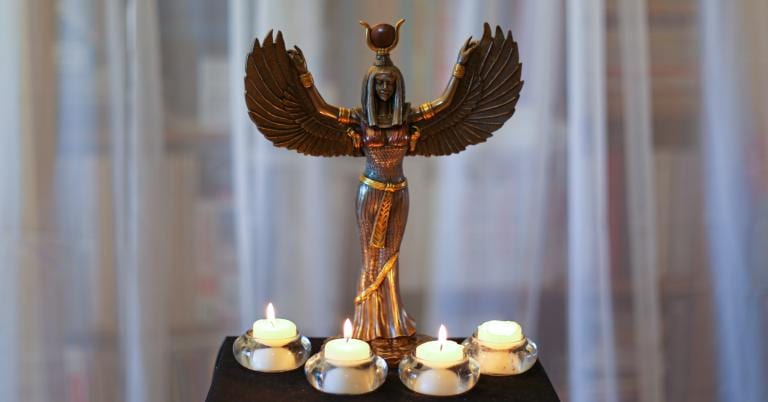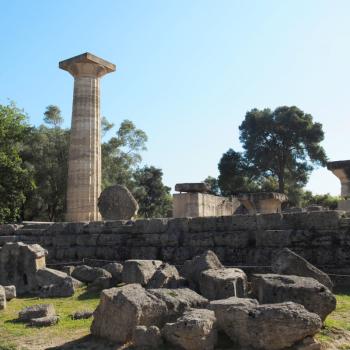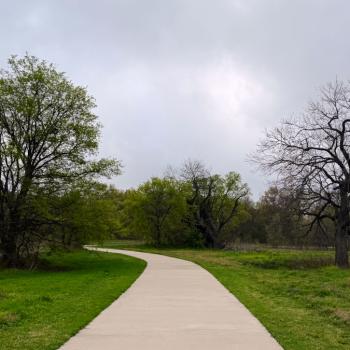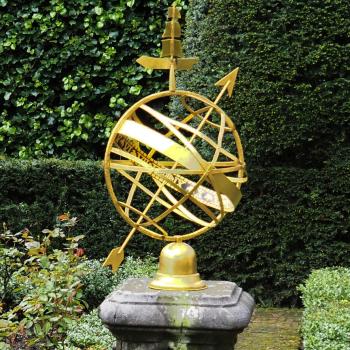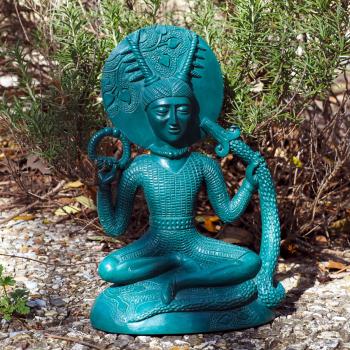A comment on a recent blog post advocated for working magic without the Gods – the exact quote was “ditch the Gods.”
Some people can do that. I can’t.
While my religion is a magical religion, it is first and foremost about the Gods: worshipping Them, working with Them, and working for Them. Still, I know more than a few witches, Pagans, and other magical folks who take a very different approach. They’re non-theists, or they’re ambivalent about the Gods, or they actively avoid the Gods. Some of them are highly competent magicians.
(Yes, you can simultaneously believe in magic and not believe in Gods, even if fundamentalist atheists would say otherwise. I believe in both because I’ve experienced both, but that’s another topic for another time.)
So yes, some people can work magic without the Gods. But I can’t. I tried for eight years and failed miserably.
I’ve written about this from a religious perspective several times. But when the commenter asked “how/why exactly did you find that you couldn’t perform magic without the Gods?” I realized I had never explored it from a magical perspective. And I think that’s worthwhile.
Exorcising fundamentalism from my soul
I’ve told this story before. And I’ll keep telling it, because there are plenty more people out there who need and want to do the same thing. Here are three important posts on this subject:
Killing Your Inner Fundamentalist (2015)
Escaping Fundamentalism (2015)
Exorcising Fundamentalism: The Steps On My Journey (2020)
I was a very literal-minded kid, as are most children. Fundamentalism is a very literal-minded religion. It’s built on a literal reading of the Bible, which is a mistake. The core of fundamentalist teaching is that unless you believe exactly the right things in exactly the right way, you will burn in hell forever. Your “sins” can be forgiven, but you have to truly repent of those sins.
And in their eyes, magic is a sin.
That’s not exclusive to fundamentalism. Virtually all flavors of Christianity teach that unauthorized magic (which is my definition of witchcraft) is sinful and to be avoided. That hasn’t stopped Christians from working magic at any point in history, but it was enough to keep me from exploring it in any depth.
Even though I really wanted to.
I couldn’t begin a serious study and practice of magic until I broke free from the fundamentalist teachings of my childhood.
Replacing bad religion with good religion
I figured out that the Bible isn’t literally true at about age 10.
Part of that was a good science education. The public schools in Tennessee in the 1970s pretty much ignored evolution, but at least they didn’t push creationism or intelligent design. And I did a lot of extracurricular science reading.
And also, I have a Pagan orientation. So I was moving in the right direction.
But what we believe is more than what we affirm in our creeds and statements of faith (or statements of no faith). I could say “I don’t believe in hell” all day long – and I didn’t. But in quiet moments, the tentacles of fundamentalism would grab me: “but what if you’re wrong?”
You can’t simply drop a bad religion – or at least, I couldn’t. You have to crowd it out it with good religion.
At my first Pagan initiation, there came a point where the priestess invested me with certain symbols, and I felt something I had never felt before (but have felt many times sense). And it felt right.
Only then was I truly free to pursue my studies of magic.
Building a magical worldview
Magic doesn’t depend on belief – it depends on action. Do the right spells in the right way and you’ll get results. But without belief you’re far less likely to do spells in the first place, much less do them right.
My teenage rebellion against fundamentalism took the form of extreme rationality. Not to the point of atheism, but enough to make me skeptical about any sort of divine or Otherworldly action. Magic wasn’t “of the devil” like the preacher said, it was “unscientific bunk” – even though I really really wanted to practice it.
I wasn’t completely skeptical of psychic phenomena – whatever that was could just be science we hadn’t yet discovered. I was looking for a book that wouldn’t be written for another 40 years or so (that’s Mat Auryn’s Psychic Witch, in case you haven’t guessed).
But psychic energy is only one way magic works. It also works by psychological programming, and it works by the intercession of Gods and spirits.
Accepting the reality of the many Gods allowed me to abandon my overly-skeptical coping mechanisms. Now I was free to fully explore cause and effect, and as I did, I came to understand that the universe isn’t composed of mostly-inanimate matter. Rather, the universe is a network of living spirits, some of whom have bodies and some of whom don’t.
And some of those spirits can be of great assistance in working magic.
A call to work magic
It’s one thing to believe magic is real, and that practicing it isn’t evil or sinful or anything of the sort. It’s another thing to actually work magic.
Lots of people like to talk about magic, and post about magic on social media. But when it comes to harvesting herbs, brewing potions, drawing sigils, or summoning spirits, that’s another thing entirely. Working magic is, well… work. And while I’ll be the first person to argue that the Protestant work ethic is evil, the cold hard fact is that not much comes without work of some description.
Even if you understand that, it’s easy to forget about magic until you have a specific need. But while need is a powerful motivator, waiting until you have a need isn’t the best way to build skills.
Two rather different deities in my life have pushed me to work more magic. The Morrigan has pushed me to get better because She wants competent magicians in Her army.
One story from ancient Egypt says it was Isis who first taught magic to humans. She was the Patron of the Under the Ancient Oaks Operative Magic class last year. I’m not sure what Her motivation is – I often think She simply wants us to have this ability because it’s helpful.
In any case, I’m working more and better magic because Gods I work for and with push me to do it. And that’s a good thing.
“Add Your magic to mine, I pray”
Most of my magic is my own work. While the grace of the Gods is good and welcome, we need not wait for it. We can take matters into our own hands and shape our own fate.
But it’s good to have powerful allies.
I’m a good magician. The Morrigan is orders of magnitude better. Particularly if I am working on something on Her behalf, or on something that will facilitate my work for Her, or if I just flat-out need it, I will ask for Her assistance. And I will ask for the assistance of the other deities with whom I have relationships.
I can work magic without the Gods. I can work better magic with Them.
And – to come back to the main point of this post – I never would have accomplished much of anything magical if I hadn’t made Them first in my spiritual life.




